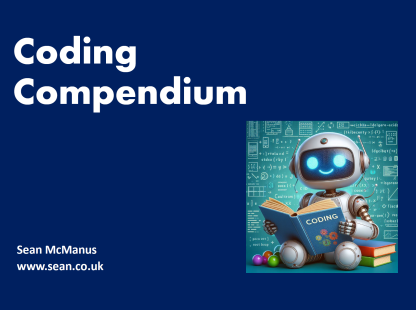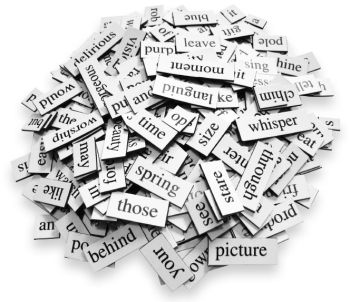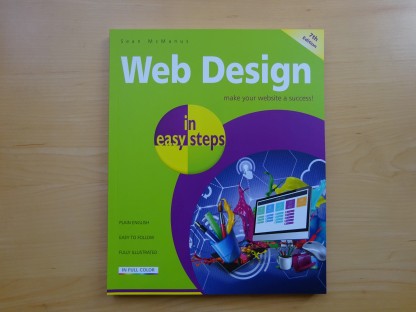
Coding Compendium
A free 100-page ebook collecting my projects and tutorials for Raspberry Pi, micro:bit, Scratch and Python. Simply join my newsletter to download it.
Freelance writer Sean McManus outlines 7 essential tools for any aspiring or professional writer.
 In his brilliant free ebook 'How to be Creative', Hugh McLeod writes: "The more talented somebody is, the less they need the props. Meeting a person who wrote a masterpiece on the back of a deli menu would not surprise me. Meeting a person who wrote a masterpiece with a silver Cartier fountain pen on an antique writing table in an airy SoHo loft would SERIOUSLY surprise me."
In his brilliant free ebook 'How to be Creative', Hugh McLeod writes: "The more talented somebody is, the less they need the props. Meeting a person who wrote a masterpiece on the back of a deli menu would not surprise me. Meeting a person who wrote a masterpiece with a silver Cartier fountain pen on an antique writing table in an airy SoHo loft would SERIOUSLY surprise me."
Many of history's finest books were handwritten or bashed out on a clanky old typewriter, and some of the greatest achievements in journalism were scribbled on a crumpled piece of paper and read down a crackly phone line. Tools are no substitute for a writer's talent, practice or hard work.
But having the right tools can certainly make it easier for you to deliver to the best of your abilities. Here are my tips for 7 essential tools for all writers.
Two computer screens: You'll be amazed how much more productive you are if you increase the size of your computer desktop. Being able to have research open on one screen while writing on the other, or being able to put two documents side by side for comparison, saves a huge amount of time switching between windows. If you only have room for one screen, make it as big as is practical and affordable.
Encyclopaedia Britannica: There's been a lot of debate about whether Wikipedia or Encyclopaedia Britannica is the most reliable source. I think writers need to use both. Britannica offers concise and scholarly articles on a wide range of topics, and it's incredible to think that you can now get it for under £20 on DVD. It used to cost hundreds in print. It's weak on popular culture, but often helps you identify the most important facts more quickly than Wikipedia's lengthy articles.
A notepad: If there's one thing on this list that's more important than anything else, it's this. Carry an ideas pad with you wherever you go, and write down your ideas in it when they occur to you. If you're in the business of writing, you're in the business of ideas. They're fleeting and perishable, so it's vital to preserve them as soon a possible.
A camera: A camera serves two purposes. Perhaps most obviously, you can use it to take photos that can accompany your articles or blog posts. Having good images is often essential for capturing the reader's attention. Less obviously, you can use it as a research tool, to document what you see so you can write about it later. As far as possible, take a camera with you, wherever you go.
A dictionary: There's no shame in not knowing every word in the English language, but it's a serious mistake to use words you don't fully understand. Make sure you're using words correctly by checking in a reliable dictionary. If you're not using a dictionary a few times a day, you're probably not being thorough enough. Options include Dictionary.com (good for checking US English) and the Cambridge English Dictionary.
Microsoft Excel: Excel is a tool for structuring information, and that's the raw material for any writer. For each book project I undertake, I create a spreadsheet to keep track of it, including the word count for each chapter (target and completed), number of images, planned and estimated current page count, any outstanding issues to resolve, and cross-referenced content I've promised in a chapter I haven't written yet. At a glance, I can see what percentage of the book I've completed, where I'm over or under target, and anything that needs attention. I can use colours to highlight the status of a chapter, and calculations to work out how much I'm writing each day, both to motivate me, and to ensure that I complete the project on time. If your Microsoft Excel skills are rusty, see my book Microsoft Office for the Older and Wiser.
Snagit: Snagit is a screen capture tool. Obviously, I use it when I'm writing computer books, but I also find it useful for capturing entire web pages for reference later, especially if they're the kind of controversial content that might be pulled offline.
BONUS: Microsoft Word: It felt like cheating to tell you that you need a word processor, because you know that. I wanted to include it, though, because a lot of writers don't know you can use it to create PDF ebooks, and to create sophisticated book layouts. My novel Earworm was designed in Microsoft Word and as you can see from the free sample, it looks polished and professional. Using Word for writing your draft is really only the start of what you can do with it. See my article on self-publishing with Lulu for tips.
© Sean McManus. All rights reserved.
Visit www.sean.co.uk for free chapters from Sean's coding books (including Mission Python, Scratch Programming in Easy Steps and Coder Academy) and more!

A free 100-page ebook collecting my projects and tutorials for Raspberry Pi, micro:bit, Scratch and Python. Simply join my newsletter to download it.

Web Design in Easy Steps, now in its 7th Edition, shows you how to make effective websites that work on any device.

Power up your Microsoft Excel skills with this powerful pocket-sized book of tips that will save you time and help you learn more from your spreadsheets.

This book, now fully updated for Scratch 3, will take you from the basics of the Scratch language into the depths of its more advanced features. A great way to start programming.

Code a space adventure game in this Python programming book published by No Starch Press.

Discover how to make 3D games, create mazes, build a drum machine, make a game with cartoon animals and more!